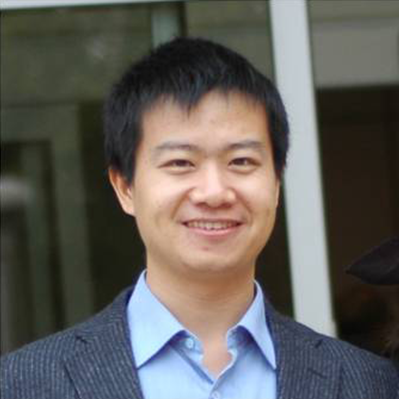Congratulations, Dr. Zhou! Yang Zhou, PhD, recently received an R01 from the National Heart, Lung, and Blood Institute for his research on lung disease. Dr. Zhang is a 2016 Advance-CTR Pilot Project Program awardee.
Awardee Spotlight: Yang Zhou, PhD
Yang Zhou, PhD, received an R01 from the National Heart, Lung, and Blood Institute.
-

Yang Zhou, PhD
Assistant Professor of Molecular Microbiology and Immunology (Research)
The Study
My research interests are directed toward understanding the immunopathogenesis of lung injury and repair. My recent research plans are aimed at dissecting the mechanisms that underlie the pathogenesis of pulmonary arterial hypertension, pulmonary fibrosis, and Type 2 immunity, specifically the roles of a Chitinase-like protein and its receptors, intracellular receptor trafficking pathways, and innate immunity in disease progress. My long-range research goals are to identify the immune and cellular responses that mediate lung injury and repair responses and to identify specific molecular targets that can be targeted in the treatment of related disorders.
My current R01 project “Targeting Chi3l1 and Its Receptors In Hermansky-Pudlak Syndrome-Associated Lung Disease” is funded by the National Heart, Lung, and Blood Institute. Hermansky-Pudlak Syndrome (HPS) is a group of inherited autosomal recessive disorders caused by genetic mutations that alter the trafficking of lysosomal-related organelles/vesicles. In a subset of patients with HPS-1 and HPS-4, pulmonary fibrosis develops in the fourth or fifth decade of life, and is a major cause of morbidity and mortality. Experiments proposed in this project will define the cellular and molecular mechanisms of CHI3L1 receptor system, and whether CHI3L1 and its receptor systems are plausible targets to treat HPS-associated lung disease.
“ The research infrastructure of Advance-CTR gives me an important appreciation of patient-focused research ... which helps me appreciate the power of an iterative approach that goes from mouse to human and back again in my thought process and experimental approaches. ”
Advance-CTR Pilot Research
In the Advance-CTR Pilot Project, in collaboration with Dr. Barry Shea at Rhode Island Hospital, we found that CHI3L1 and its receptors are dysregulated in and play critical roles in the generation of lung fibrosis. We also found that these responses are largely mediated by a receptor called CRTH2. The current project extends on these findings and we will determine the cell types in which CHI3L1 interacts with CRTH2 to stimulate fibroproliferative processes. We will also attempt to develop therapeutics to treat fibrotic responses in related lung disorders.
In addition, the Advance-CTR Pilot Project has provided me with valuable experience in multi-disciplinary collaborations with physician scientists and experts in disease pathogenesis, study design and biostatistics. The research infrastructure of Advance-CTR gives me an important appreciation of patient-focused research including advanced clinical study design and the development of and prospective evaluation of patient cohorts, which helps me appreciate the power of an iterative approach that goes from mouse to human and back again in my thought process and experimental approaches.
Collaborators
As a junior faculty member, I have been privileged to work with outstanding mentors and collaborators including Jack Elias, Chun Geun Lee, Sharon Rounds, Beth Harrington, Jim Klinger, Barry Shea, and investigators in the CPVB COBRE program. In addition, Dr. Jyothi Menon, an Assistant Professor of Biomedical and Pharmaceutical Sciences at the University of Rhode Island, is collaborating with me to synthesize and evaluate the efficacy of a potential therapeutic neutralizing antibody incorporated into Poly lactic-co-glycolic acid (PLGA) nanoparticles.
What's Next
No therapy is available to treat HPS-associated lung disease. Experiments proposed in this project will investigate CHI3L1 biology in mouse models of pulmonary fibrosis with phenotypes similar to human HPS disease. These studies will define the cellular and molecular mechanisms of CHI3L1 receptor system and will determine whether CHI3L1 and its receptor systems are plausible targets to treat HPS-associated lung disease. In addition, targeting this pathway may benefit patients with other forms of pulmonary fibrosis including Idiopathic Pulmonary Fibrosis (IPF). These studies will provide novel and important information into the involvement of CHI3L1 axis in the pathogenesis of lung disease in HPS patients, as well as provide insights into identifying CHI3L1 and/or its receptors/binding partners as therapeutic targets for fibrotic lung diseases in general.